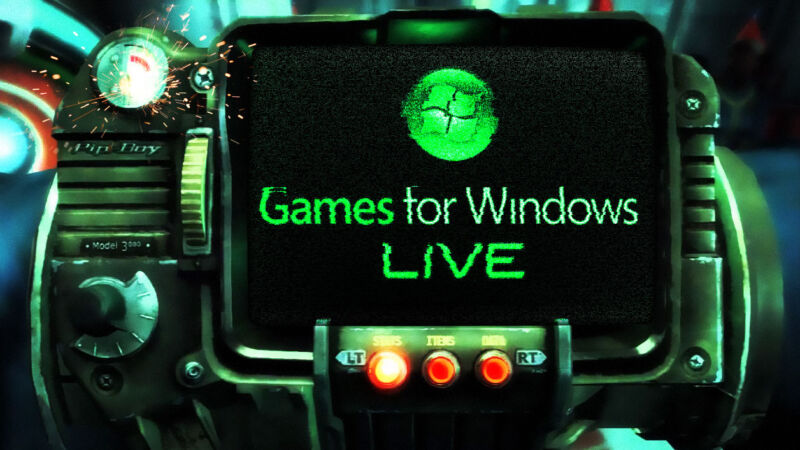
Bethesda's Fallout 3 launched in 2008 and, in most ways, moved the series into the future of 3D post-apocalyptic adventuring for the better. But one of the game's "forward" steps was anything but, at least on PC—it adopted the then-new Games For Windows Live (GFWL) service.
This week, that situation changes with the game's first official patch on PC in 12 years. The patch is designed to do only one thing: remove all GFWL dependencies.
The 5.4MB patch for the game's Steam version went live on Tuesday and was accompanied by a brief patch note that merely states, "If Fallout 3 was previously installed on Steam, we suggest uninstalling and reinstalling the title." Anecdotal reports suggest that any Fallout 3 fans who still have the PC version installed via Steam will need to do just that, as the patching process may stop the game from booting.
And thus, Shadowrun ran in the shadows
If you're familiar with GFWL, you'll recall that the service has been defunct since 2014. It was intended to unify the Windows and Xbox 360 player bases but infamously crashed and burned thanks to a number of stumbles. Out of the gate, it required a $50/year subscription fee, mirroring that of Xbox 360's Live Gold tier, which PC gamers instantly rebuffed. (Microsoft quickly changed course on that requirement and made it a free PC service.)A chicken-and-egg game followed, where players and publishers alike remained hesitant to adopt this add-on system when PC storefronts like Steam already offered conveniences like matchmaking and friends lists. Microsoft failed to build momentum for a universe of cross-platform compatibility, especially since the service launched in June 2007 with a PC port of Halo 2 that did not connect to the Xbox player base and, at one point, required Windows Vista. (You needed to play Shadowrun for 360/PC crossplay, and, apparently, very few people bothered with that.)
If you happened to connect the same Gamertag to your living room Xbox 360 and your office PC, you could expect to run into headaches where a console Netflix viewer would disconnect a PC gamer and vice versa. (Remember when people used Xbox 360s to watch Netflix? And even paid for Xbox Live Gold for the privilege?)
Pipboy now runs 0.03 percent faster
By the time the service went defunct, most Fallout 3 players had figured out how to either mod-out all GFWL logins or, if they really wanted to rack up Xbox achievements in the game, use workaround methods to log in to Microsoft's still-functioning GFWL backend and connect their Xbox "gamertag" credentials. The game still technically worked without a GFWL login, at least, so players weren't left stranded when Bethesda stopped patching the game. Even so, today's patch appears to sweep out any trace of GFWL.
The move comes more than a year after Microsoft acquired Bethesda Game Studios' parent company—and months after Microsoft paid that acquisition forward by adding Fallout 3 to its increasingly massive Xbox Game Pass service. If you grab Fallout 3's PC version via Xbox Game Pass today, however, you're in for the rude awakening of a required 43GB installation, since the game forces players to download multiple spoken-language packs without an option to disable or uninstall extraneous ones. (It's one of the many reasons devout Fallout 3 fans prefer the Steam version, which also lets players install every mod, patch, and quality-of-life update they could dream of, all thanks to a massive modding community.)
As of press time, it's unclear when or how this GFWL depreciation will appear on Xbox Game Pass for PC, but it's hard to imagine Microsoft approving a Steam patch without doing anything similar for its wholly owned PC gaming storefront. Perhaps all those positive recent changes to the Windows Store will mean we can soon expect reduced bloat and fewer headaches on PC game installs from there.
reader comments
97